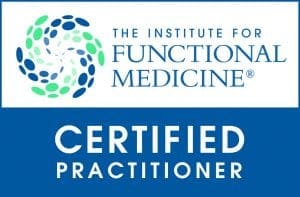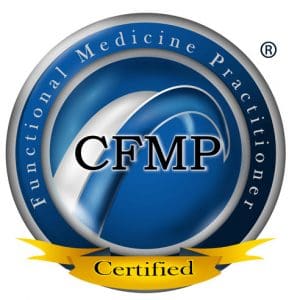At the current moment, we are still struggling with the COVID-19 pandemic. Even today, we are bombarded with medical information on how to prevent complications secondary to this condition. However, the inflammatory cytokine storm derived from the SARS-CoV-2 virus is the main complication that needs to be addressed. Recently, the risk of developing an inflammatory cytokine storm has been associated with an omega-6/omega-3 ratio disbalance. Therefore, it is believed that this complication can be prevented if the anti-inflammatory metabolites derived from omega-3 fatty acids are increased.
Omega-6/omega-3 Ratio and Immunology
Tissue healing and a controlled immune response against pathogens are triggered by the inflammatory metabolites from omega 6 fatty acids. Indeed, arachidonic acid (AA) and linoleic acid can trigger the inflammatory response, including p
At the current moment, we are still struggling with the COVID-19 pandemic. Even today, we are bombarded with medical information on how to prevent complications secondary to this condition. However, the inflammatory cytokine storm derived from the SARS-CoV-2 virus is the main complication that needs to be addressed. Recently, the risk of developing an inflammatory cytokine storm has been associated with an omega-6/omega-3 ratio disbalance. Therefore, it is believed that this complication can be prevented if the anti-inflammatory metabolites derived from omega-3 fatty acids are increased.
Table of Contents
Omega-6/omega-3 Ratio and Immunology
Tissue healing and a controlled immune response against pathogens are triggered by the inflammatory metabolites from omega 6 fatty acids. Indeed, arachidonic acid (AA) and linoleic acid can trigger the inflammatory response, including pain, redness, elevated temperature on the injured area, swelling, or loss of function. Regardless of the pain-associated sensation and the deleterious feeling of an injury, these signals are needed to activate our defense and repair mechanisms.
Following this inflammatory response, a quick suppression must take place. Here is where the resolvins come in handy: metabolites from omega-3 fatty acids such as eicosapentaenoic acid (EPA) and docosahexaenoic acid (DHA). Therefore, the presence of inflammatory agents from n-6 and its suppression by EPA and DHA depends on the balance of the omega-6/omega-3 ratio.
However, this ratio’s disbalance (elevated omega 6) results in an excessive and prolonged inflammatory response that cannot be easily suppressed. Consequently, this results in tissue damage and can potentially lead to an autoimmune condition.
Currently, in western civilization, the omega-6/omega-3 ratio is approximately 20:1. This ratio is tightly associated with the population’s pro-thrombotic state and a supraphysiologic inflammatory state that promotes chronic conditions. Indeed, the high amount of omega-6 in our diet is linked to the intake of seed oils such as soybean, corn, cottonseed, and canola oil. On the other hand, the low intake of marine fish in our population is the main cause of low omega-3 fatty acid consumption, perpetuating the chronic low-grade inflammation state.
Omega-3 and immunomodulation.
Lipids can be found on the phospholipidic immune cell membranes. Therefore, the composition of such membrane will predict the inflammatory signals. When Arachidonic acid is the main component of the immune cellular membrane, and this cell becomes activated by constant exposure to dietary or environmental allergens, the result will be an inflammatory 2,4-series eicosanoids overproduction. Furthermore, an exaggerated or prolonged activation of such a condition will lead to an immune system self-attack. On the other hand, incorporating EPA/DHA into the immune cell membrane will increase an anti-inflammatory metabolites production known as 3/5- series eicosanoids, docosanoids, resolving, and protectins. Â Therefore, by promoting a balance of our essential fatty acids intake, this will translate to a balance cell membrane, ultimately resulting in a modulated and controlled immune response.
The overall consumption of omega 6 fatty acids in the westernized civilization results in a composition of approximately 20% of AA’s immune cellular membrane. Meanwhile, EPA and DHA constitute approximately 1% and 2.0-2.5% of the cellular membrane, respectively. In fact, recent animal model studies have found that a 3.2g of EPA/DHA supplementation can improve the omega-6/omega-3 ratio and increase the omega-3 phospholipid content up to 3.5%.
Inflammatory modulation.
Human studies have demonstrated that a balance omega-6/omega-3 ratio results in improvements in inflammatory conditions. Furthermore, this is mainly due to omega-3’s modulatory effects on nuclear factor kappa-beta (NF-kB). Also, this particular effect seems to be useful in reducing the cytokine storm caused by SARS-CoV.
Omega-3 PUFAs mechanisms for reducing cytokine storm
| Inhibits NF-kB translocation. |
| Increases the 3/5-series eicosanoids while competing/decreasing AA-derived inflammatory eicosanoids (leukotrienes, interleukins, and cytokines). |
| Competes for immune cell membrane phospholipid component. |
| Suppresses and resolves inflammation, potentially improving survival to sepsis. |
| Increases neutrophils and monocyte phagocytic activity. |
Indeed, NF-kB can translocate to the nucleus and upregulate inflammatory cytokine production. Consequently, the cytokine storm associated with SARS-CoV and SARS- CoV2 is initiated by an NF-kB activation. Animal models infected with coronaviruses have shown that increasing omega-3 intake can inhibit NF-kB nuclear translocation and prevent the inflammatory cytokine storm in the respiratory system, specifically in the lungs.
Also, investigators have concluded that this same omega-3- 3 anti-inflammatory effects can be applied to influenza’s treatment and may improve sepsis and acute respiratory distress syndrome (ARDS).
The underlying anti-inflammatory effects of omega-3 rely on competition of metabolite production against AA. Also, omega-3 PUFAs can inhibit cyclooxygenase and lipoxygenase enzyme activity.
Lastly, the overall conclusion is that we must improve our omega-3 dietary intake and find omega-6/omega-3 balance. Indeed, striving for a 4:1 ratio is recommended by DiNicolantonio and O’Keeffe.
The balance of the immune system and inflammation creates a modulated response to outsiders, pathogens, infections, injuries, and food allergens. All of the environmental factors play a vital role in our reaction to multiple situations. Nevertheless, the balance between what we eat has become part of our immune function. Indeed, the intake of omega-3 fatty acids interacts with our cellular membrane composition that translates to inflammation suppression and immune modulation.
Our immune response is linked with our nutritional intake and inflammatory responses. Nowadays, what we eat initiates a chain reaction that needs to be modulated, and a balanced diet plays a vital function in this regard. The dietary intake of omega-3 fatty acids can be improved by integrating marine fish into our diet more than 2 times a week. Also, fish oil or omega-3 PUFA supplementation is a great way to improve our omega-6/omega-3 ratio. – Ana Paola RodrÃguez Arciniega, MS
References
DiNicolantonio, James J, and James O’Keefe. “The Importance of Maintaining a Low Omega-6/Omega-3 Ratio for Reducing the Risk of Inflammatory Cytokine Storms.†Missouri medicine vol. 117,6 (2020): 539-542. Additional Online Links & Resources (Available 24/7)


Online Appointments or Consultations:Â bit.ly/Book-Online-Appointment
Online Physical Injury / Accident Intake Form: bit.ly/Fill-Out-Your-Online-History
Online Functional Medicine Assessment: bit.ly/functionmed
Disclaimer
The information herein is not intended to replace a one-on-one relationship with a qualified healthcare professional, licensed physician, and not medical advice. We encourage you to make your own health care decisions based on your research and partnership with a qualified health care professional. Our information scope is limited to chiropractic, musculoskeletal, physical medicines, wellness, sensitive health issues, functional medicine articles, topics, and discussions. We provide and present clinical collaboration with specialists from a wide array of disciplines. Each specialist is governed by their professional scope of practice and their jurisdiction of licensure. We use functional health & wellness protocols to treat and support care for the musculoskeletal system’s injuries or disorders. Our videos, posts, topics, subjects, and insights cover clinical matters, issues, and topics that relate to and support, directly or indirectly, our clinical scope of practice.* Our office has made a reasonable attempt to provide supportive citations and has identified the relevant research study or studies supporting our posts. We provide copies of supporting research studies available to regulatory boards and the public upon request. We understand that we cover matters that require an additional explanation of how it may assist in a particular care plan or treatment protocol; therefore, to further discuss the subject matter above, please feel free to ask Dr. Alex Jimenez or contact us 915-850-0900.  Read More…
Dr. Alex Jimenez DC, MSACP, CCST, IFMCP*, CIFM*, CTG*
email:Â coach@elpasofunctionalmedicine.com
phone: 915-850-0900
Licensed in Texas & New Mexico
General Disclaimer
Professional Scope of Practice *
The information herein on "A Balanced Omega-6/Omega-3 Ratio: Cytokine Storm Prevention" is not intended to replace a one-on-one relationship with a qualified health care professional or licensed physician and is not medical advice. We encourage you to make healthcare decisions based on your research and partnership with a qualified healthcare professional.
Blog Information & Scope Discussions
Welcome to El Paso's Premier Wellness and Injury Care Clinic wellness blog, where Dr. Alex Jimenez, DC, FNP-C, a board-certified Family Practice Nurse Practitioner (FNP-C) and Chiropractor (DC), presents insights on how our team is dedicated to holistic healing and personalized care. Our practice aligns with evidence-based treatment protocols inspired by integrative medicine principles, similar to those found on dralexjimenez.com, focusing on restoring health naturally for patients of all ages.
Welcome to El Paso's Premier Wellness and Injury Care Clinic & wellness blog, where Dr. Alex Jimenez, DC, FNP-C, a board-certified Family Practice Nurse Practitioner (FNP-C) and Chiropractor (DC), presents insights on how our team is dedicated to holistic healing and personalized care. Our practice aligns with evidence-based treatment protocols inspired by integrative medicine principles, similar to those found on dralexjimenez.com, focusing on restoring health naturally for patients of all ages.
Our areas of chiropractic practice include Wellness & Nutrition, Chronic Pain, Personal Injury, Auto Accident Care, Work Injuries, Back Injury, Low Back Pain, Neck Pain, Migraine Headaches, Sports Injuries, Severe Sciatica, Scoliosis, Complex Herniated Discs, Fibromyalgia, Chronic Pain, Complex Injuries, Stress Management, Functional Medicine Treatments, and in-scope care protocols.
Our information scope is limited to chiropractic, musculoskeletal, physical medicine, wellness, contributing etiological viscerosomatic disturbances within clinical presentations, associated somato-visceral reflex clinical dynamics, subluxation complexes, sensitive health issues, and functional medicine articles, topics, and discussions.
We provide and present clinical collaboration with specialists from various disciplines. Each specialist is governed by their professional scope of practice and their jurisdiction of licensure. We use functional health & wellness protocols to treat and support care for the injuries or disorders of the musculoskeletal system.
Our videos, posts, topics, subjects, and insights cover clinical matters, issues, and topics that relate to and directly or indirectly support our clinical scope of practice.*
Our office has reasonably attempted to provide supportive citations and has identified the relevant research studies or studies supporting our posts. We provide copies of supporting research studies available to regulatory boards and the public upon request.
We understand that we cover matters that require an additional explanation of how they may assist in a particular care plan or treatment protocol; therefore, to discuss the subject matter above further, please feel free to ask Dr. Alex Jimenez, DC, APRN, FNP-BC, or contact us at 915-850-0900.
We are here to help you and your family.
Blessings
Dr. Alex Jimenez DC, MSACP, APRN, FNP-BC*, CCST, IFMCP, CFMP, ATN
email: coach@elpasofunctionalmedicine.com
Licensed as a Doctor of Chiropractic (DC) in Texas & New Mexico*
Texas DC License # TX5807
New Mexico DC License # NM-DC2182
Licensed as a Registered Nurse (RN*) in Texas & Multistate
Texas RN License # 1191402
ANCC FNP-BC: Board Certified Nurse Practitioner*
Compact Status: Multi-State License: Authorized to Practice in 40 States*
Graduate with Honors: ICHS: MSN-FNP (Family Nurse Practitioner Program)
Degree Granted. Master's in Family Practice MSN Diploma (Cum Laude)
Dr. Alex Jimenez, DC, APRN, FNP-BC*, CFMP, IFMCP, ATN, CCST
My Digital Business Card




















